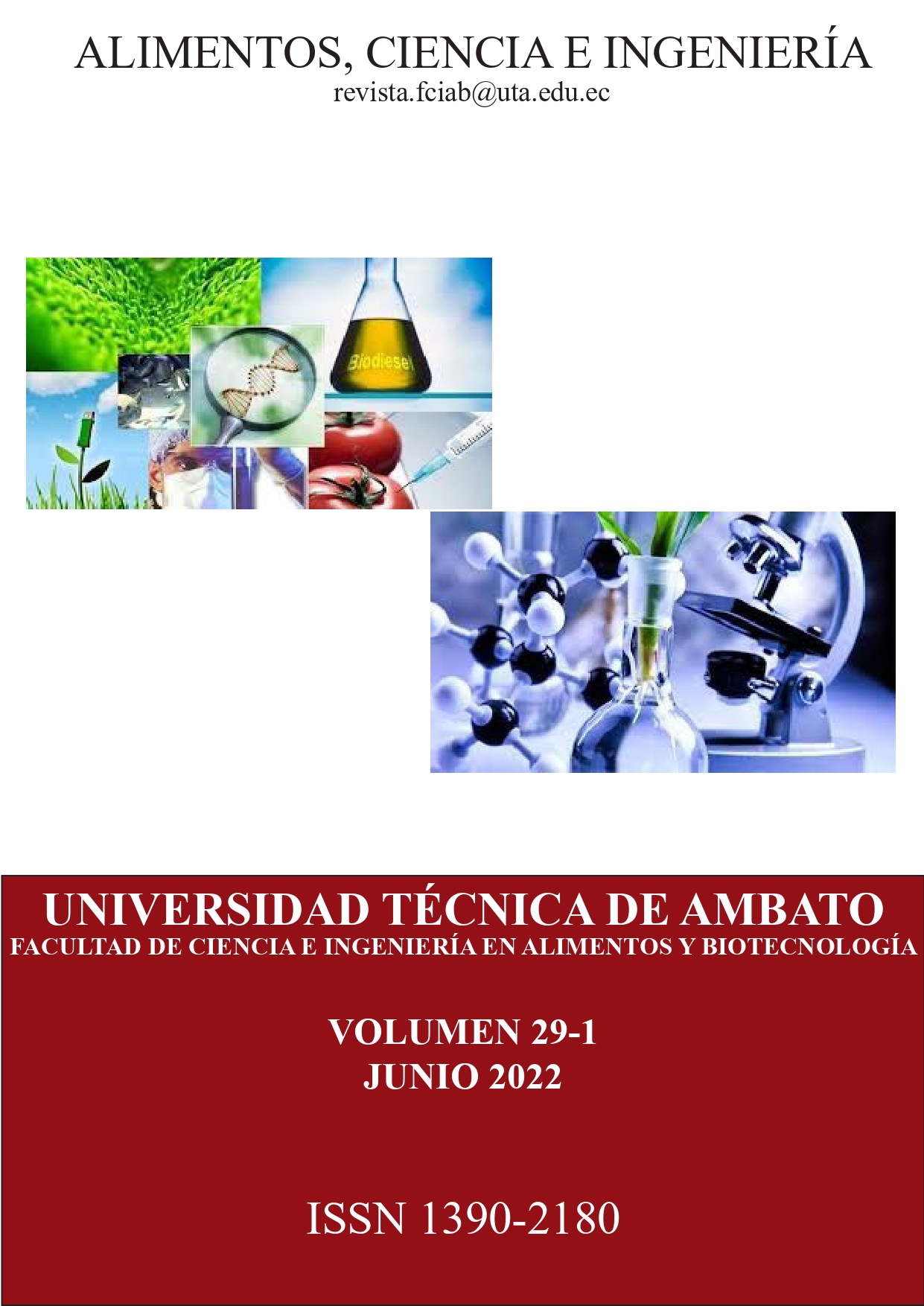Establecimiento de un consorcio bacteriano nativo degradador de crudo Napo
Main Article Content
Abstract
Oil extraction activities are vulnerable to the occurrence of fortuitous environmental incidents that cause great deterioration of the native flora and fauna due to their exposure to petroleum hydrocarbons. Thus, there is an urgent need to efficiently eliminate the toxic oil components accumulated in the environment. Here, fifteen hydrocarbon-degrading bacterial consortia able to use Napo-crude oil as the only carbon source were isolated from soil samples. Of these, six consortia showed an oil biodegradation efficiency (%BE) that fluctuated between 20.12 to 27.98% after 22 days of incubation.
The isolated consortia showed a significantly higher degradation efficiency compared to that of Pseudomonas aeruginosa and Bacillus cereus mixed culture (%BE = 9.37). The native consortium CPF-L5A, established from soil samples exposed for a long time to hydrocarbons, showed the highest crude biodegradation efficiency amongst the isolated consortia. Virtually, this consortium could totally remove the biodegradable fraction of Napo-crude oil in approximately 2.6 months. Therefore, the CPFL5A consortium is an excellent candidate to be used in the ex-situ treatment of oil-contaminated soils through the implementation of a bioaugmentation system.
Downloads
Article Details

This work is licensed under a Creative Commons Attribution-NonCommercial 4.0 International License.
Aquellos autores/as que tengan publicaciones con esta revista, aceptan los términos siguientes:
a. Los autores/as conservarán sus derechos de copiar y redistribuir el material, bajo los términos estipulados en la Licencia de reconocimiento, no comercial que permite a terceros compartir la obra bajo las siguientes condiciones:
Atribución: debe dar el crédito apropiado, proporcionar un enlace a la licencia e indicar si se realizaron cambios. Puede hacerlo de cualquier manera razonable, pero no de ninguna manera que sugiera que el licenciante lo respalda a usted o su uso.
No comercial: no puede utilizar el material con fines comerciales.
Sin restricciones adicionales: no puede aplicar términos legales ni medidas tecnológicas que restrinjan legalmente a otros hacer cualquier cosa que la licencia permita.


